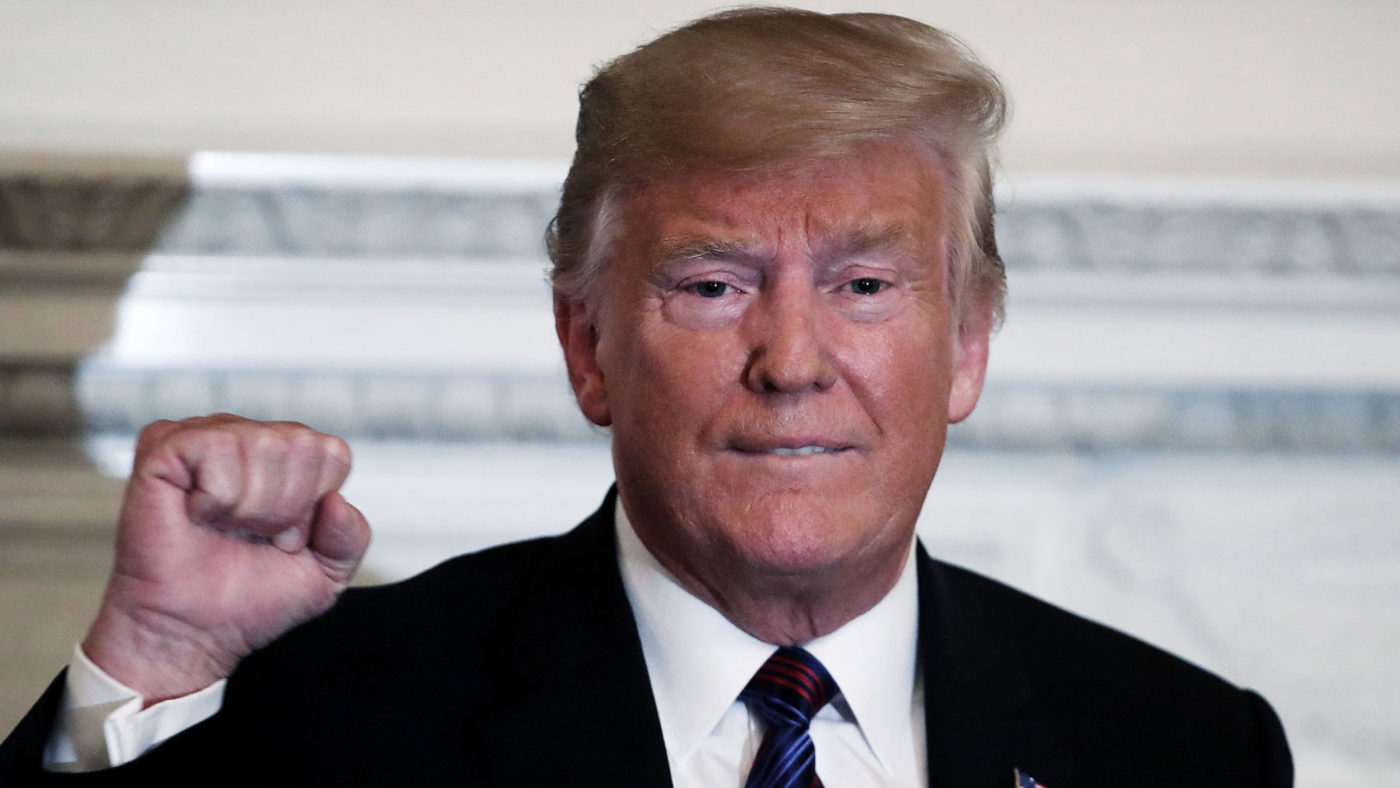Donald Trump tweeted something strange last week. In itself, that’s nothing unusual. The President certainly has form when it comes to outlandish and whacky pronouncements.
But amid his calling the Mueller investigation “a rigged witch hunt” and attacking his former lawyer Michael Cohen, Trump said something else. He revealed he had instructed Secretary of State Mike Pompeo “to closely study the South Africa land and farm seizures and expropriations and the large scale killing of farmers”.
From the looks of things, Trump heard about the story from Fox News, who he tagged at the end of his tweet, along with one of the channel’s star presenters, Tucker Carlson.
A clue as to why Trump expressed interest in this relatively obscure subject was provided in the thread of replies under the president’s tweet, where Canadian YouTube activist Lauren Southern thanked the president for his attention.
Southern is a fellow traveller of the alt-right and associate of the affiliated ‘identitarian’ movement. She is part of a collection of new and old media, including Carlson, which has given South Africa outsized attention in the past year. She produced an emotive hour-long film on the subject called Bloodlands. In it, she suggests that white South Africans are being murdered with the tacit acquiescence of the government, and subjected to a form of genocide. It’s a pitch built on wilful distortion combined with a histrionic tone which inflates what is still in essence a small and local issue.
The story has now found its way to the president of the United States, and serves as a reliable arrow in the quiver of the global far-right. Local stories like this increasingly form part of political discussion across the globe, as world-spanning political ideologues of all stripes use social media and internet culture to co-ordinate their messaging around parochial issues.
This could perhaps be called the globalisation of local politics. Once identified, examples of the genre can be found almost everywhere.
The far-right is best at it. In its years of isolation, activists built up serious and self-reinforcing networks, which emerged from the tumult of 2016 strong and certain of what their participants believed.
Those ideas, harboured almost in secret and hardened in the online wilderness, now emerge in odd places. The far-right is effective on YouTube, where its proponents talk about walls, migration, feminism, and George Soros, with relative ease and surprising effectiveness.
This has bled into political culture worldwide, elevating often trivial incidents in carefully selected countries to global news stories. A few months ago, American, Dutch and Australian politicians intervened in what might previously have been a decorous and small-time debate about British media law.
These varied personalities rallied to protests against Tommy Robinson’s imprisonment for breaching reporting restrictions on a criminal case in progress. Robinson’s hardcore advocates, co-ordinated by Ezra Levant of the radical right lodestar The Rebel, turned a staid discussion about procedure and process into a tempestuous argument about free speech, multiculturalism, religion and race.
We find the same characters weighing into the debate about South Africa. By drip-feeding horrifying stories about the murders of white farmers — and exaggerating the South African government’s apparent indifference – the radical right has been able to paint a series of brutal but unrelated killings as a genocide in progress.
This has become a far-right cause celebre like no other, a story which has travelled from the YouTube-borne right, via Fox News, all the way to the Oval Office. Cherry-picked stories of other nations serve to provide the willing with endless cautionary tales. In far-right circles, Sweden and Britain have each become bywords for sky-rocketing crime rates (apparently fuelled by migration), and general moral and social collapse.
Sadiq Khan’s London is depicted as a blood-soaked morass of knife-crime and abjection. Malmo in Sweden is subject to hysterical coverage from those who know little of, and care less about, the country – something ably and even-handedly examined by Gabriel Gatehouse in a recent edition of Newsnight.
The far-right has for years claimed there is a “Third World invasion” of European capital cities, which tend to have a higher percentage of foreign-born residents than elsewhere. When Trump said ‘Paris is no longer Paris’, he was echoing this idea, in a suitably truncated, distorting manner.
Though its aims are categorically distinct, parts of the international left have skilfully made use of similar techniques. We see pro-Corbyn site Skwawkbox going “undercover” in Venezuelan supermarkets to disprove claims the country is going through a famine. The idea behind the stunt being that if Venezuela’s famine can be disproven or obfuscated away, those like Corbyn who once hailed the country as a beacon of hope can be insulated against the effects of its failure.
Similarly earlier this month, Corbyn supporters piled into Israeli prime minister Benjamin Netanyahu, who had become part of the party’s battle over anti-Semitism.
This is the apotheosis of local politics gone global: a petty squabble turned into an international incident for domestic political gain. Those engaged in this all-out war are skilled propagandists. It is almost a perverse pleasure to watch them work. But perhaps the origins of some of their tactics might at least give some of them pause for thought.
Spinning scare stories about foreign countries for domestic consumption is hardly new. Previous centuries furnish many examples of lurid press headlines about foreign horrors and politicians canny enough to capitalise. The way social media now allows foreign observers to follow developments in-depth has proved a new boon for canny, upstart political movements which disdain the status quo.
They understand how the global reach of social media has changed the way politics is conducted and the effect this could have on voters. Where once it was said that all politics was local, the opposite is now the case. Even local politics can be recruited to serve or reinforce global narratives, distorting complex reality in the process. And this in turn can characterise the politics worldwide, for better or, as it has proven, for worse.


